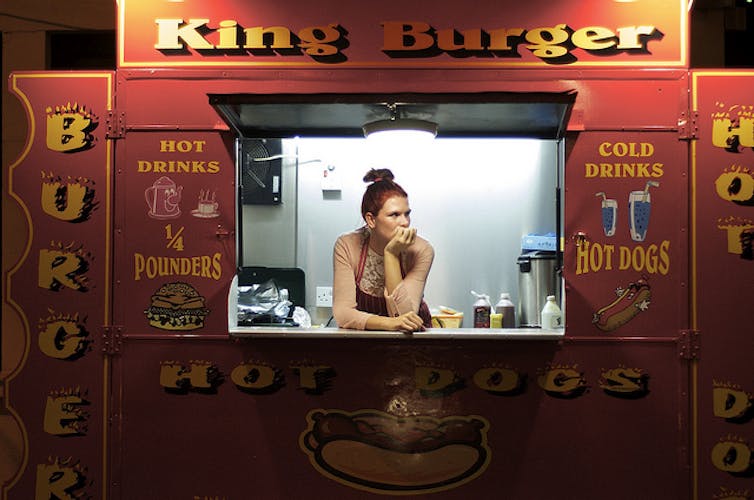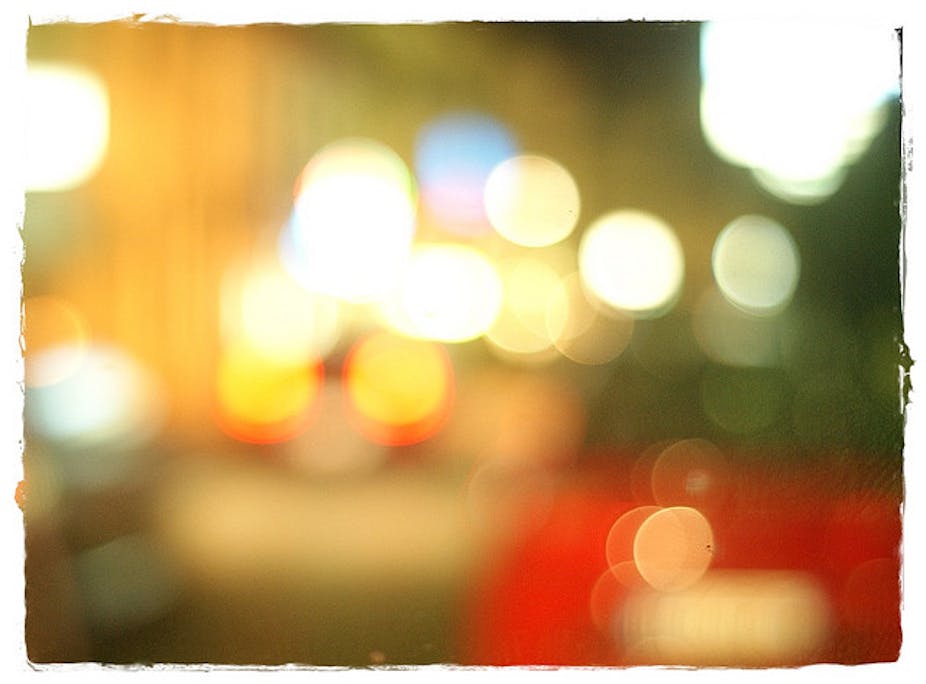Heavy drinkers are mixing alcohol with energy drinks to enable them to drink longer and get more drunk. While the trend is concerning many public health researchers – because the risks remain unknown – others are attempting to allay these fears, claiming there’s nothing to worry about.
Late on Friday and Saturday nights (or, more accurately, early on Saturday and Sunday mornings), around 40% of people on Australian city streets are heavily intoxicated, with breath alcohol concentrations (BAC) greater than 0.087. Nearly a quarter of these drinkers have consumed more than two energy drinks.
We don’t have reliable data on use in other countries but use abroad is high. Around three-quarters of college students in the United States and 85% of Italian students report consuming alcohol energy drinks in the past month.
Our research, and that of others around the world, has shown that drinkers who consume energy drinks record higher breath alcohol concentrations than those who don’t. They’re also more likely to report engaging in aggressive acts; being injured; having driven while drunk or been the passenger of a drunk driver; and having taken sexual advantage of, or been taken advantage of by, another person.
But these studies don’t tell whether the energy drinks are the culprit, whether people who are more likely to engage in these behaviours are more likely to use energy drinks, or perhaps most likely, some combination of the two.
Normally, experimental research is able to give us some answers. But ethics committees are extremely reluctant to allow researchers to reproduce in the laboratory the levels of alcohol intoxication and energy drink use we see on our streets.
Therefore, much of the laboratory research has, for ethical reasons, been confined to studying the effects of combining lower-levels of alcohol intoxication (BAC under 0.08) with a single energy drink. These doses equate to a coffee and a few beers, far below the levels of consumption that raise public health concerns.
Some of the researchers doing these studies have argued that we shouldn’t be concerned about the risks of combining alcohol and energy drinks. Many of those who draw this reassuring conclusion have been funded by one of the major energy drink producers, Red Bull.
The industry-friendly conclusions from the laboratory studies are undeniably correct about alcohol energy drinks when consumption is limited to a single energy drink and alcohol use has been limited that defined as still safe to drive. But for researchers interested in night-time violence, studies which look at people under 0.08 are largely irrelevant.

So it’s concerning when these researchers claim we don’t need to do any more research on this topic when they simply haven’t investigated the levels of alcohol and energy drink consumption at which trouble is likely to occur.
It’s especially worrisome that four out of five talks at special conference sessions on this topic have been made by industry-funded researchers. The same speakers have been funded to attend conferences around the world by a company with financial interest in the research outcomes. The frequent failure to disclose this fact raises questions about the use of research findings as image management.
There are two core issues of public health concern which need be investigated. First, is there an interaction between alcohol and energy drink consumption at higher levels of intoxication, as seen on our streets – for example, when people have had 10 drinks or have a BAC greater than .10?
And second, is there an interaction between a given level of alcohol use and the effects of higher levels of energy drink use – for example, between two and three standard cans?
Until we know the answers to these questions we shouldn’t be misleadingly reassured by laboratory studies which purport to show that energy drinks have no effects on intoxication.

